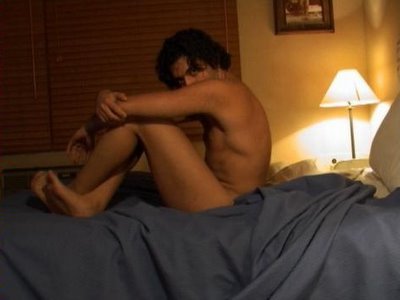 JOHANNESBURG, SOUTH AFRICA - Gay men have promised to descend on branches of the South African National Blood Service around the country from tomorrow in a campaign to force the service to scrap its ban on gay blood.
JOHANNESBURG, SOUTH AFRICA - Gay men have promised to descend on branches of the South African National Blood Service around the country from tomorrow in a campaign to force the service to scrap its ban on gay blood.The Gay and Lesbian Alliance is campaigning for donors to be able to give blood without disclosing their sexual orientation. The SA National Blood Service refuses to accept blood from gay men.
Alliance spokesman David Baxter said the national campaign would be led by alliance executive members, starting tomorrow.
They are rallying gay men to donate blood en masse, and lie about their sexual orientation on the disclosure form.
“We have 157 000 members, of whom 150 000 are gay men, so this will be a massive national campaign, which will hopefully force the blood services to treat all blood the same.”
Baxter said the association had a following in the Eastern Cape and along the Garden Route.
The alliance had also lodged a complaint with the Human Rights Commission.
Human Rights Commission chairman Jody Kollapen said he could not confirm whether a complaint had been received from the alliance, but it was possible it had been filed in one of the organisation’s regional offices.
In December, The Herald reported how Stephen Vos, of Port Elizabeth, was turned away from a blood drive because he was gay. He said it was a violation of his human rights.
Baxter argued that all blood was screened for the HIV virus anyway, and the group most at risk of infection by HIV was not gay men, but heterosexual women between the ages of 18 and 24.
“The argument that it is an international standard also doesn’t work because we have our own Constitution and as such must cater to that,” Baxter said.
The alliance has also threatened to file a lawsuit on February 1 if the blood service does not alter its questionnaire to focus on all risky sexual behaviours.
The “self-exclusion” questionnaire, which is filled in before donating blood, asks general questions about health and exposure to needles and malaria.
It then asks about the sexual activities of the donor and specifically asks whether the donor has had male-on-male sex in the past five years.
“We have just won a huge victory by having gay marriages legalised, so the gay community is ready to fight issues like these. This is our time now,” Baxter said.
The campaign comes only months after the blood service emerged from an embarrassing dispute with government over racial profiling of blood.
The service was forced to put in a place a new analysis system to determine HIV risk that did not discriminate against black donors.
Kollapen said the commission supported the blood service’s attempts to ensure a safe blood supply, but it should not employ stereotypes or exclude people in trying to achieve this goal.
He said the challenge for the blood service was to find a scientific method to safeguard blood that did not have a negative impact on people wanting to perform a civic duty.
Blood service medical director Dr Robert Cookes said: “There is no value judgment being made by the service. Our intention is purely to protect the health of the recipient of the blood.” Cookes said it was not only gay men who had been excluded, but anyone who had been involved in “risky behaviour, including going into malaria areas”.
He said the organisation was looking at changing the male-on- male sex question wording, as it could be “gender insensitive”.
He urged gay men, and anybody else who was involved in “potentially risky behaviour”, not to donate blood as they would be putting lives at risk.
from The Herald
No comments:
Post a Comment